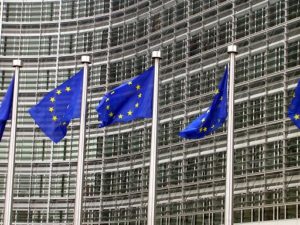Biofuel market operators slammed the European Commission Tuesday for a legislative vacuum on the implementation of sustainability criteria for renewable fuels in Europe after a deadline to adopt a directive came and went in December.
Biofuel market operators slammed the European Commission Tuesday for a legislative vacuum on the implementation of sustainability criteria for renewable fuels in Europe after a deadline to adopt a directive came and went in December.
The December 5, 2010 deadline for the Renewable Energy Directive (RED) of 2009, which stipulates minimum requirements for biofuels in the bloc, was only met by a handful of countries.
Market operators criticized the European Commission for failing to ensure all member states adopt the legislation at the International Sustainability and Carbon Certification (ISCC) 2011 General Assembly in Brussels.
According to RED, biofuels have to present a minimum of 35% greenhouse gas savings compared to fossil fuels and cannot be sourced from land holding high carbon stocks or biodiversity.
It also sets a target of 10% of renewable fuels for road transport by 2020 and an overall 20% goal for renewable energy by the same year.
Market operators claim they have been left in regulatory limbo since the deadline.
“We cannot trade biofuels as a commodity in Europe [anymore], because there are many different requirements for sustainability,” trader Ulrich von Furstenberg from Ambrian Energy said.
While countries like Germany and Austria have fully implemented the RED, other member states are still in the process of writing legislation.
A disconnect between early implementers and countries which are at the early stages of transposing the RED has lead to a dubious legal environment for international trading, participants said.
“When we have requirements at the EU level but no legal framework at the national level, we have a bit of a problem,” Pierre Tardieu of EU Oil and Proteinmeal Industry Association Fediol said.
The European Commission declined to comment on the status of the RED implementation on member states, arguing that it is doing everything in its power to ensure this happens as quickly as possible.
“We have three situations. Countries that have fully implemented the directive, some that have partially done it, and some that haven’t even notified the Commission,” Ron Van Erck from the Directorate-General for Energy at the European Commission said, without naming any specific countries.
“The deadline was December and most countries missed it. We want to know what is the Commission doing about it and how should we operate in this legal vacuum,” a participant said during the discussion session.
FRUSTRATION
In an attempt to address industry concerns, Ron Van Erck recognized the frustration caused by an uneven implementation of the directive and advised operators to gather evidence of compliance on a voluntary basis.
“Shall the need arise, you’ll be able to prove that your product met all the criteria,” he said.
He also recognized that the Commission fell short of anticipating the many hurdles market participants claim were caused by lack of harmonization on the RED implementation.
“Looking in retrospect, there were better ways we could have regulated it, but we are where we are, and it is what it is,” he added.
Participants said it is not enough from a legal standpoint to collect evidence on a voluntary basis as there is no guarantee governments will accept it later on to prove compliance with the RED.
“I disagree,” Ron Von Erck said. “I don’t see any reasons why member states would refuse to work with the industry to smooth the process.”
Market operators also criticized the EC for delays in confirming that national law in countries that have already implemented the directive, such as German and Austria, are fully in line with the requirements set by the EU.
“Without the EC approval, I don’t even know if the German law is really in line with the directive,” one participant said.
“I don’t see an issue there. The Germans have implemented it and we have no reason to believe their law is not RED compliant,” he said.


